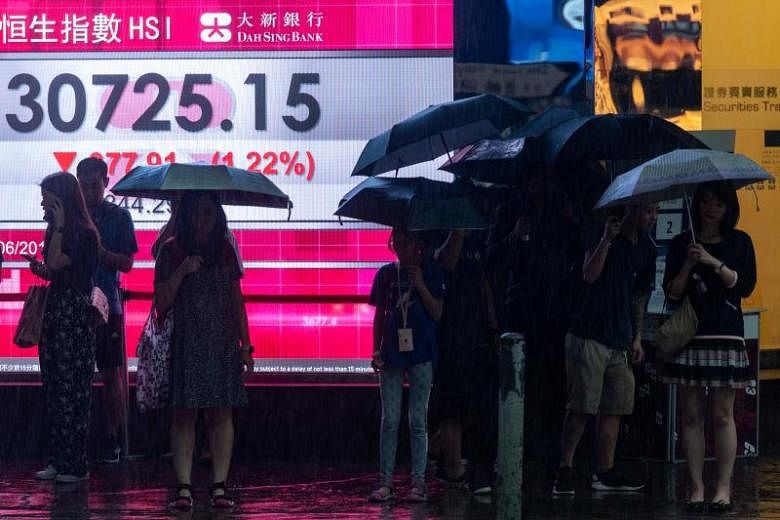SINGAPORE - Asian markets recovered ground on Tuesday (Aug 14) despite an ongoing sell-off in the Turkish lira and concerns of a contagion effect on other emerging market currencies.
With MSCI Asia Pacific Index rising 0.5 per cent on Tuesday, analysts said that the lira's freefall has mainly affected markets with the strongest trade ties to Turkey.
Hong Kong's Hang Seng dropped 0.66 per cent on Tuesday, while China's Shanghai Composite fell 0.18 per cent and Japan's Nikkei 225 closed 2.28 per cent higher. Singapore's Straits Times Index slipped 0.08 per cent.
The lira, which dipped about 7 per cent during Asian trading hours on Monday, has lost over two-fifths of its value this year. It stood at 6.6 lira against the US dollar on Tuesday.
The currency went into free fall last Friday after United States President Donald Trump doubled tariffs on Turkish steel and aluminium over the country's refusal to release an American pastor who has been detained there for nearly two years.
"Generally, market sentiment is that the emerging markets that are being implicated at this current moment are the ones which have stronger trading ties with Turkey - around Europe, Africa and some parts of America. For Asia markets, there hasn't been so much concern brewing here yet," said IG market strategist Pan Jingyi.
While the lira is still moving and the market is assessing the impact of the plunge, she added that recent shifts are a "clear reminder" of the implications a US Federal Reserve rate hike could have on this region.
Maybank Singapore's head of foreign exchange research Saktiandi Supaat noted that the lira decline has hit currencies such as the Indian rupee and Indonesian rupiah.
On Tuesday, Indian currency hit a record low of 70.08 to one US dollar.
"Portfolio outflows may be something you might see affecting some of the emerging market countries which have current account deficits and fiscal deficits," he said.
He added that the currency situation is going to be weighed down by the additional variable of US-Turkey ties, on top of background concerns over a trade war between US and China.
"Markets are trying to price that in... but with any further developments, you could see further weakness in the lira affecting Asia," he said.
DBS Group Research FX strategist Philip Wee and economist Radhika Rao said it is a "significant development" that the US raised tariffs on Turkey while its economy is under considerable stress. This could be seen as a message to emerging markets that America may not reprise its "traditional role" to calm their markets during such periods.
The situation is likely to worsen if the US Federal Reserve continues on its gradual rate hike path, they added.
Countries including Turkey, who borrowed freely when dollars were cheap, now face debt payment they might not be able to make. Should borrowers default on their debts, it would mean big losses for foreign banks, especially in Europe.
Noting that the collapse of the lira is fuelling concern of a full-blown currency and debt crisis - given the amount of US dollar-denominated debt in the private sector - Old Mutual Global Investors fund manager Delphine Arrighi added that a lack of credible policy response is pushing Turkish asset prices into a tailspin.
She added: "Although the recent measures announced by the Central Bank of the Republic of Turkey will aim to ease onshore liquidity, they will fall short of restoring investors' confidence."


